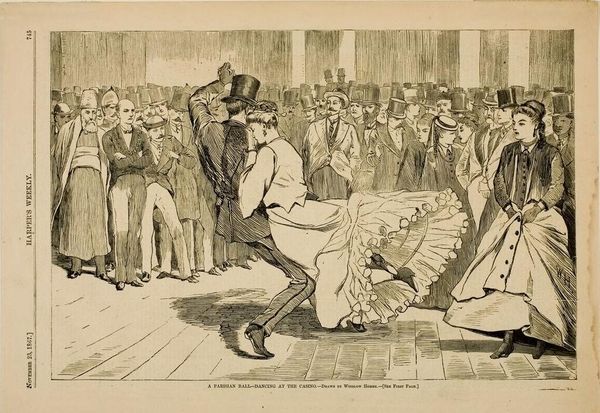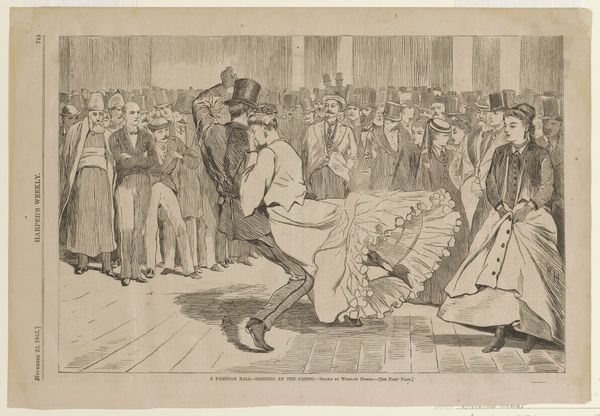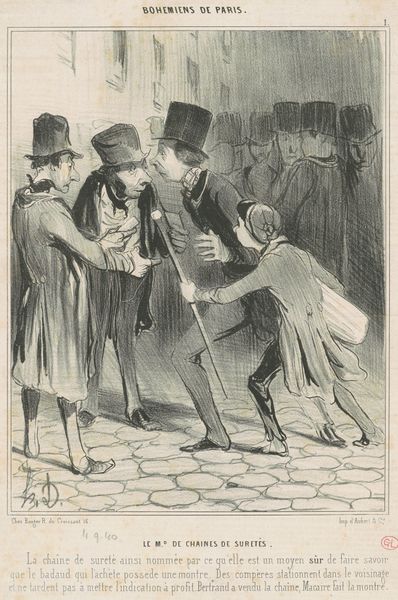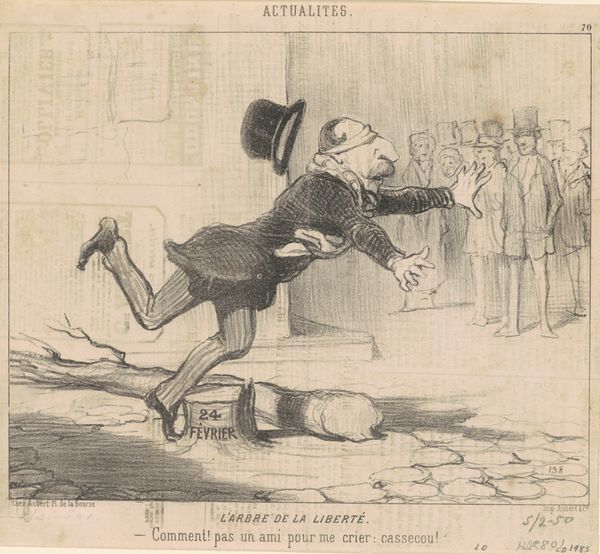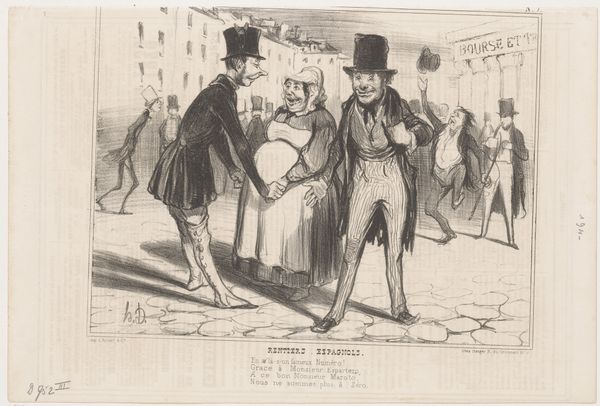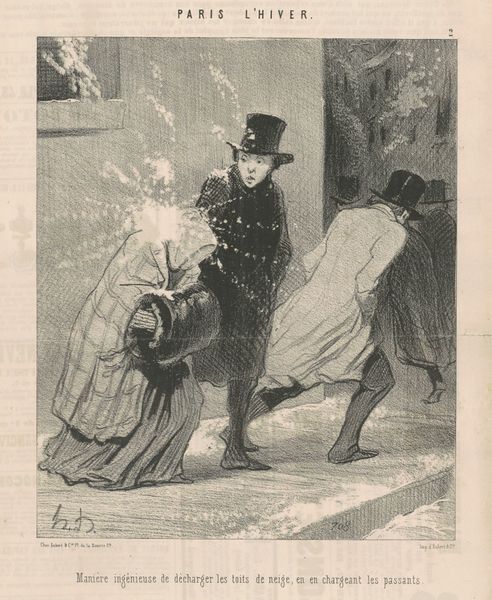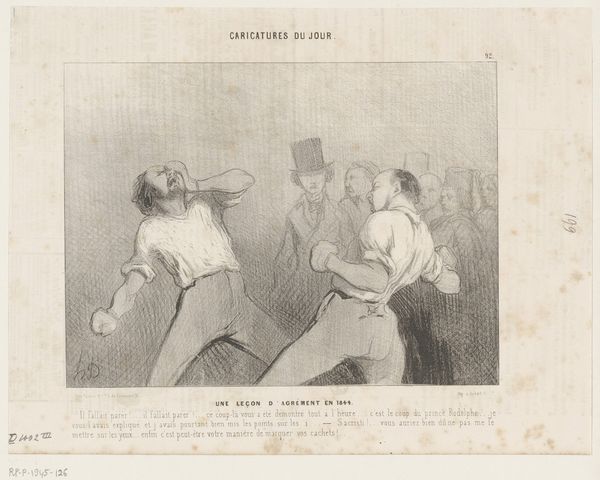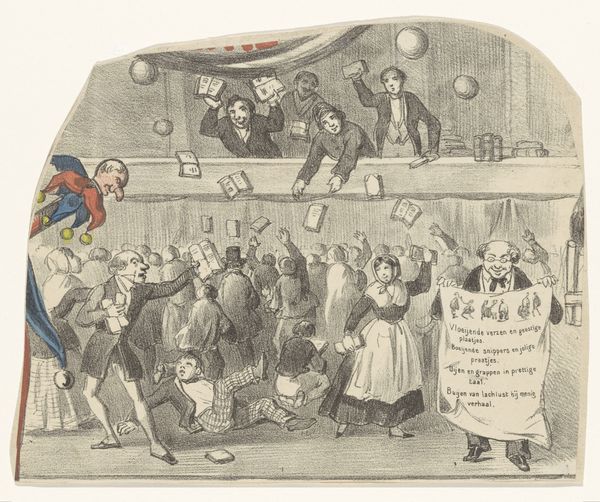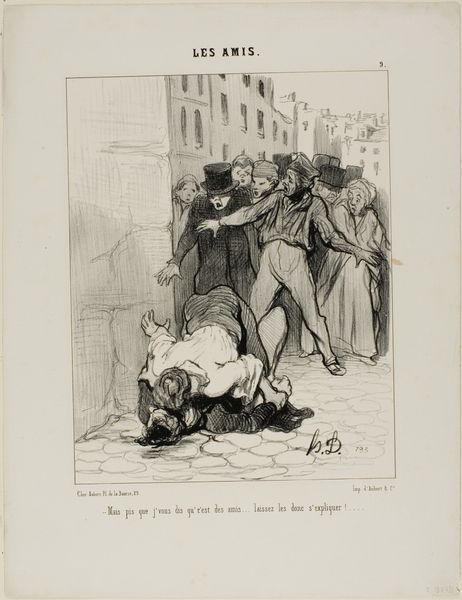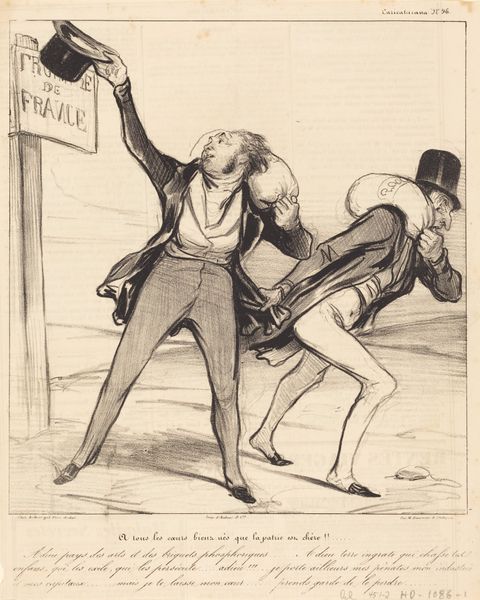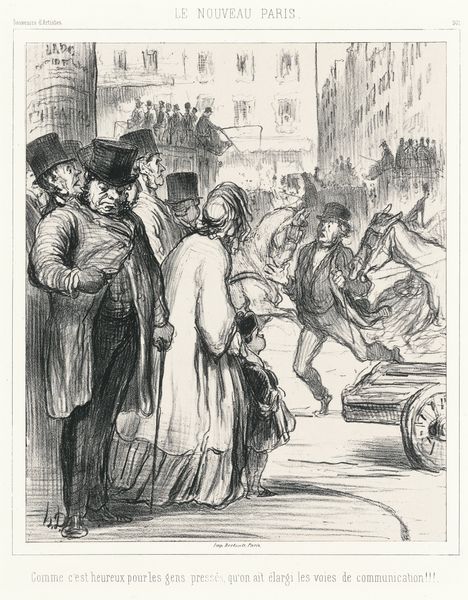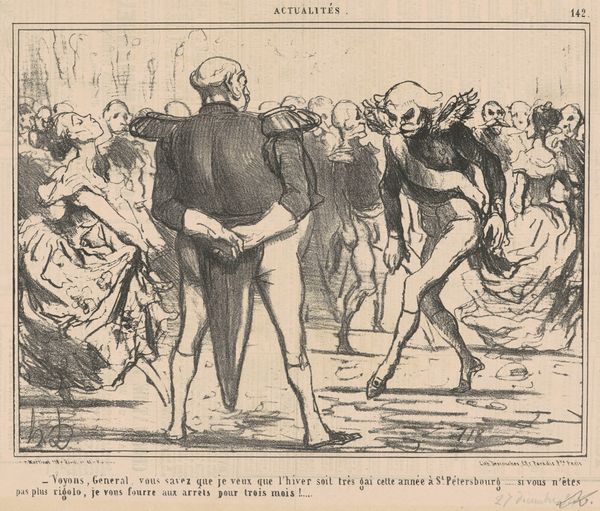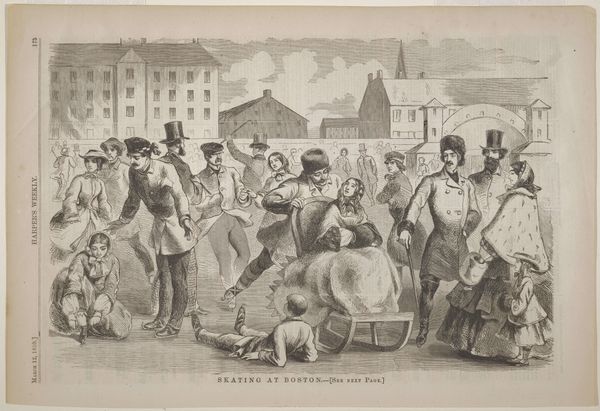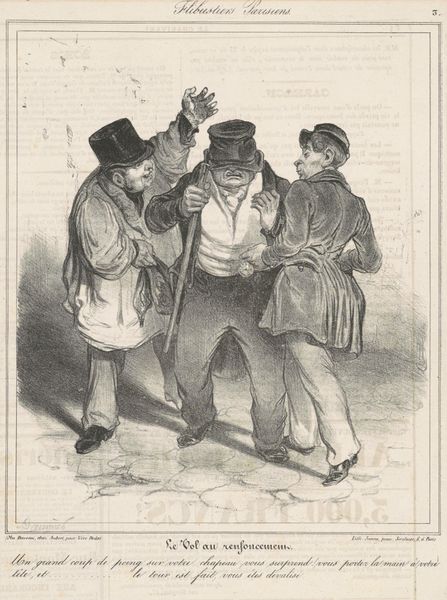
A Parisian Ball – Dancing at the Casino (from "Harper's Weekly," Vol. XI) 1867
0:00
0:00
drawing, print, etching, engraving
#
portrait
#
drawing
#
16_19th-century
# print
#
impressionism
#
etching
#
folk-art
#
cityscape
#
genre-painting
#
history-painting
#
academic-art
#
engraving
Dimensions: image: 9 1/8 x 13 3/4 in. (23.2 x 34.9 cm) sheet: 11 x 16 in. (28 x 40.7 cm)
Copyright: Public Domain
Curator: Winslow Homer's "A Parisian Ball – Dancing at the Casino" from 1867, printed in "Harper's Weekly," captures a lively scene. It's an etching, so the fine lines create detail and texture, inviting a very close look. Editor: Right, my first thought: whirling! A blizzard of petticoats and top hats. But the dancers are framed by a sea of faces, some admiring, others rather… bored? Curator: Indeed. Note the contrast between the kinetic energy of the couple and the static observation of the onlookers. Homer employs a limited tonal range, emphasizing line to convey movement and the rigidity of the formal attire. This tension could be interpreted as a commentary on social norms restricting individual expression, even in moments of leisure. Editor: Exactly! It’s like the dance floor's a stage, and the audience is waiting for something scandalous to happen. That exposed ankle practically screams rebellion against Victorian propriety. Also, I noticed some faces that stand out by their exotic attires... Who are they, do you know? Curator: Given Homer’s tendency for social commentary, these may very well be visiting diplomats. The choice of characters really anchors this scene firmly in 19th-century Paris. The engraving captures the fashion, the mood and really makes it all pop, doesn't it? The eye goes to the spinning woman because her clothes are the lightest object, a point which directs and grounds the tonality, and establishes a strong pictorial narrative. Editor: Makes you wonder what music they’re dancing to. Something waltzy and maybe a little bit daring for the time, right? And while they seem like a central focus, it's also a candid look at social expectations. I guess there is some humor there. Curator: Precisely! The composition draws the viewer in with its dynamic rhythm, only to confront us with the silent scrutiny of the crowd, creating a palpable sense of theatricality and social constraint. It’s a visual dichotomy perfectly rendered through Homer’s masterful use of line and form. Editor: Yeah, and honestly, those stern faces give the piece this undercurrent of irony. Like everyone's in on some joke except the couple dancing. Great stuff to consider!
Comments
No comments
Be the first to comment and join the conversation on the ultimate creative platform.
